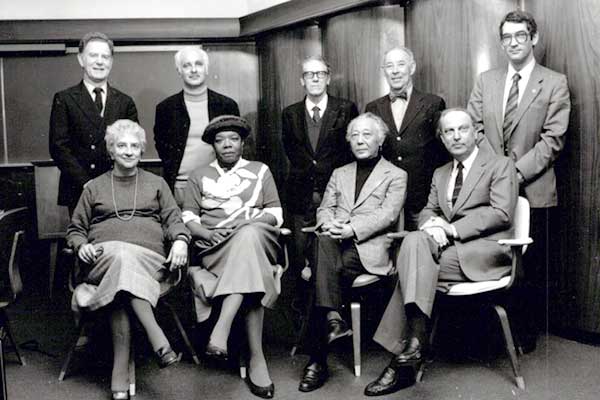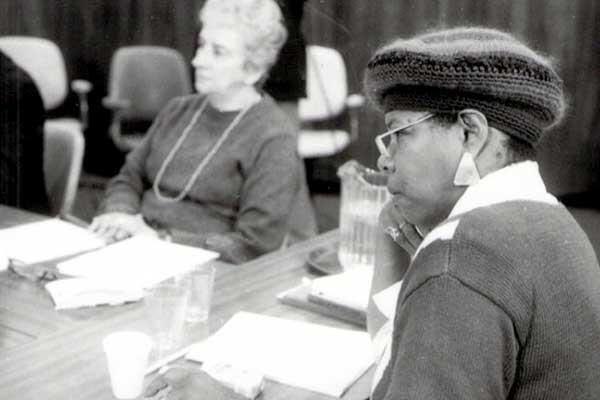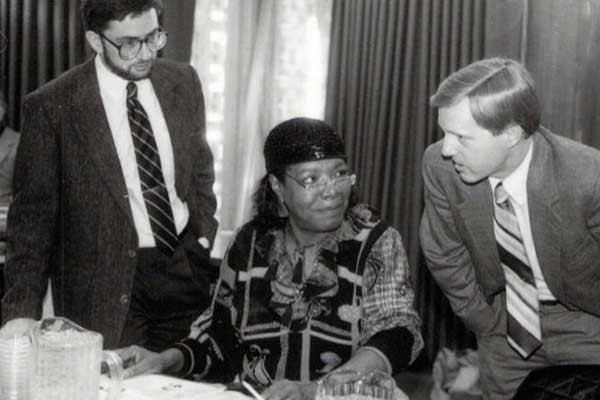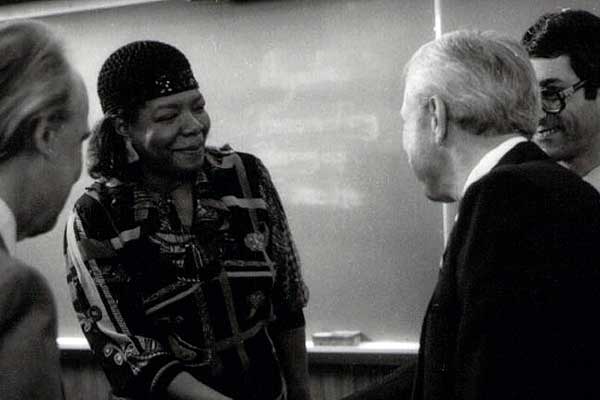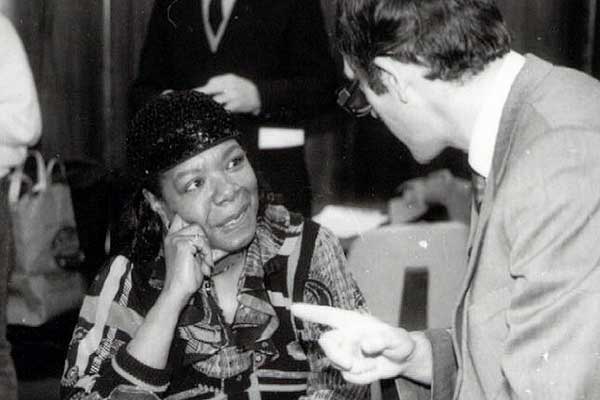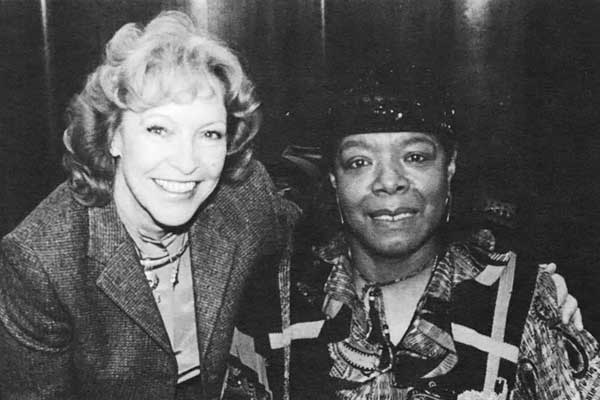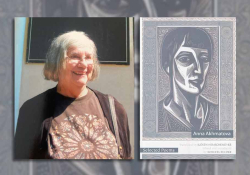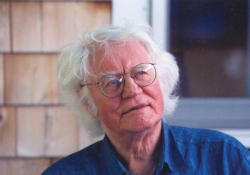“When I die I’ll live again”: A Tribute to Maya Angelou (1928–2014)
The editors and staff of World Literature Today join in mourning the passing while celebrating the life and literary legacy of Maya Angelou, who died earlier today at her home in Winston-Salem, North Carolina, at the age of eighty-six. Dr. Angelou was a visiting lecturer at the University of Oklahoma and one of ten members of the jury that chose the winner of the 1986 Neustadt International Prize for Literature, sponsored by WLT. Her nominee for the 1986 award was Nigerian dramatist, poet, novelist, and critic Wole Soyinka (b. 1934), who went on to win the Nobel Prize in Literature later that year. The accompanying photo gallery features other members of the Neustadt Prize jury, which convened on the Norman campus in February 1986. A review of Angelou’s Collected Poems is reprinted below. – Daniel Simon, Editor in Chief
A Review of The Complete Collected Poems of Maya Angelou (1994) and Phenomenal Woman: Four Poems Celebrating Women (1995).
Maya Angelou’s five volumes of poems are here collected, reset in a handsome typeface, and produced in a collector’s first edition. As a sort of companion volume, her publisher, Random House, has brought out a separate, pocket-size volume of “four poems celebrating women,” entitled Phenomenal Woman (after the title poem). It too is handsomely designed; the publisher no doubt hopes to capitalize on the wider recognition of the poet, following her reading of her poem “On the Pulse of Morning” at the inauguration of President Clinton in 1993.
Angelou’s poems celebrate black people, men and women; at the same time, they bear witness to the trials of black people in this country. Implicitly or directly, whites are called to account, yet Angelou’s poetry, steeped though it is in the languages and cultures of black America, does not exclude whites. Quite the reverse: the poems are generous in their directness, in the humor Angelou finds alongside her outrage and pain, in their robust embrace of life. They are truly “celebratory.”
Though Angelou’s repertory is wide, she is at her best when working in the rhythms and highly inflected speech patterns of black Southern dialect, or being street-wise hip. She prefers strong, straightforward rhyme to free verse. The musical currents of blues and jazz, the rhythm of rap songs, and the language of the Bible mingle in her poems. The rhetoric of the pulpit is here too, though Angelou sometimes turns it to secular purposes. “Still I Rise,” a poem about the survival of black women despite every kind of humiliation, deploys most of these forces, as it celebrates black women while simultaneously challenging the stereotypes to which America has subjected them since the days of slavery. “Does my sassiness upset you?” “Does my haughtiness offend you?” “Does my sexiness upset you?” the poet demands in an in-your-face tone through successive stanzas, leading to the poem’s inspirational conclusion. The penultimate stanza is especially strong: “Out of the huts of history’s shame / I rise / Up from a past that’s rooted in pain / I rise / I’m a black ocean, leaping and wide, / Welling and swelling I bear in the tide.”
Angelou is master of several poetic idioms, and her voices are many. From the admonitory “Letter to an Aspiring Junkie” (“Let me hip you to the streets, / Jim, / Ain’t nothing happening”) to the simple prayer of a black man giving thanks for another day on earth (“Thank You, Lord”), she provides her readers direct access to her poems.
I was once a sinner man,
Living unsaved and wild,
Taking my chances in a dangerous world,
Putting my soul on trial.
Because of Your mercy,
Falling down on me like rain,
Because of Your mercy,
When I die I’ll live again,
Let me humbly say,
Thank You for this day.
I want to thank You.
Maya Angelou does not stint and she does not spare the often painful details of her people. Still, she somehow gives hope.
Sandra Cookson
Canisius College
From World Literature Today 69, no. 4 (Autumn 1995), 800.
